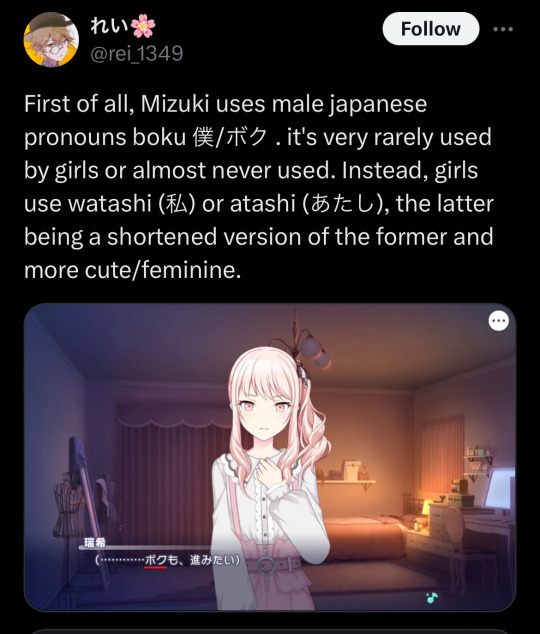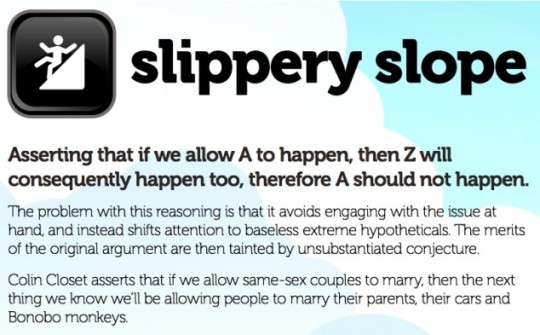Text
What they don’t tell you about speaking multiple languages is that your brain does not in fact have a box labeled Spanish and another one labeled German. Instead it has a box labeled “Not English” and sometimes when you’re talking or writing in one of the languages you speak it will just start pulling random words from that box.
35K notes
·
View notes
Text
I asked my supervisor - who has lived in Japan for 17 years, speaks fluent Japanese and reads Japanese documents/emails on a daily basis for work/general life (including helping us with complicated official paperwork) - how to read a fairly basic word (人物 - じんぶつ). He stared at it for a moment and was like, yeah I'm not actually 100% sure.
It's an N3 word btw, but those kanji are N4.
If someone who's fluent in Japanese and has lived in Japan for 17 years and is generally pretty interested in languages doesn't always remember how to read N3 vocab then you really don't need to kick yourself for not remembering all the kanji readings all the time.
123 notes
·
View notes
Text
CEFR Language learning levels
A1: can go grocery shopping probably maybe sort of
A2: can have very simple conversations with patient people
B1: can conversation usually mostly normally
B2: can talk about most things and possibly even argue
C1: sort of like a native speaker at this point-ish
C2: you went to college and possibly even paid attention
1K notes
·
View notes
Text
Did you know that the english word “star” and the japanese word 星(ほし)don’t actually mean the same thing?
Language does not simply name pre-existing categories; categories do not exist in 'the world'
— Daniel Chandler, Semiotics for Beginners
I read this quote a few years ago, but I don’t think I truly understood it until one day, when I was looking at the wikipedia article for “star” and I thought to check the Japanese article, see if I could get some Japanese reading practice in. I was surprised to find that the article was not titled 「星」, but 「恒星」, a word I’d never seen before. I’d always learnt that 星 was the direct translation for “star” (I knew the japanese also contained meanings the english didn’t, like “dot” or “bullseye”, but I thought these were just auxiliary definitions in addition to the direct translation of “star” as in "a celestial body made of hydrogen and helium plasma").
To try and clear things up for myself, I searched japanese wikipedia for 星. It was a disambiguation page, with the main links pointing to the articles for 天体 (astronomical object) and スター(記号)(star symbol). There was no article just called 「星」.
It’s an easy difference to miss, because in everyday conversation, 星 and star are equivalent. They both describe the shining lights in the night sky. They both describe this symbol: ★. They even both describe those enormous celestial objects made of plasma.

But they are different - different enough to not share a wikipedia article. 星 is used to describe any kind of celestial body, especially if it appears shiny and bright in the night sky. “Star” can be used this way too (like Venus being called the “morning star”), but it’s generally considered inaccurate to use the word like this, whereas there is no such inaccuracy with 星. You can say “oh that’s not actually a star, it’s a planet”, but you CAN’T say 「実はそれは星ではなく惑星だよ」 (TL: that’s not actually a hoshi, it’s a planet). A planet IS a 星.
星 is a very common word, essentially equivalent to “star”, but its meaning is closer to “celestial body”. I haven’t looked into the etymology/history but it’s almost like both english and japanese started out with a simple, common word for the lights in the sky - star/星 , but as we found out more about what these lights actually were, english doubled down on using the common word for the specific scientific concept, while japanese kept the common word generic and instead came up with a new word for the more specific concept. If this is actually what happened, I’d guess that kanji probably had something to do with it - 星 as a component kanji exists inside the word for planet, 惑星, and in the word for comet, 彗星, and in the scientific word for “star”, 恒星, so it makes sense that it would indicate a more general concept when used standalone.
This discovery helped me understand that quote - categories don’t exist in the world, we are the ones who create them. I thought that the concept of “star” was something that would be consistent across all languages, but it’s not, because the concept of “star” is not pre-existing. Each language had to decide how to name each of those similar star-like concepts (the ★ symbol, hot balls of gas, twinkling lights in the sky, planets, comets, etc), and obviously not every language is going to group those concepts under the same words with the same nuance.
Knowing this, one might be tempted to say that 恒星(こうせい) is the direct translation for “star”. But this isn’t true either. In most of the contexts that the word “star” is used in english, the equivalent japanese will be simply 星. Despite the meanings not lining up exactly, 星 will still be the best translation for “star” most of the time. This is the art of translation - knowing when the particulars are less important than the vibe or feel of a word. For any word, there will never be an exact perfect translation with all the same nuances and meanings. Translation is about finding the best solution to an unsolvable problem. That's why I love it.
5K notes
·
View notes
Text
crying laughing at this tweet bc theres like 50 japanese people in the qrts calling them a fucking moron

4K notes
·
View notes
Text
I have a question for the greater Japanese language learning community.
What is something that you wish your learning materials would explain better/do better/differently? This could be anything you have found yourself going "Man I wish they did X instead of Y" or "Z would be so much easier than learning it like B." Anything at all. https://www.tumblr.com/new/ask/senchastudying Send them here or reblob this. Up to you.
Please reblob this so I can get a wider net of answers. Please and thank you. <3 Oh and happy October. 🎃
33 notes
·
View notes
Text
does anyone have any recs for native websites/apps (=not made for learners) that are fun to read? i’m not interested in the news....i’m considering getting a magazine subscription from honto but i figured i’d ask what ppl are reading before i decide for sure 🤔
517 notes
·
View notes
Text
Two job-hunting resources that changed my life:
This cover letter post on askamanger.com. A job interview guide written by Alison Green, who runs askamanager.
252K notes
·
View notes
Text

Help I’m drowning
62 notes
·
View notes
Text
one of my students shared this cool website where you can drill yourself on japanese conjugations: link
i looked at it myself and you can mess with options to choose if you want verbs, adjectives, which conjugations you want to practice, if you want furigana, etc. there's a bunch of stuff
565 notes
·
View notes
Text
jp learning log 12 (22/07/2024)
anyway uh. have not posted in at least one month, nor have i been really looking at tumblr either. just haven’t really felt the need to post anything since i’m mostly just following along with my japanese classes and not feeling like there’s much else to mention other than that + not feeling that comfortable to go into too much personal detail. not really hyperfixated/obsessed with learning japanese anymore, and i guess it sorta turned into a regular hobby.
also switched to a twice a week class from 5 times a week because i’m going to start school soon… the pace in the twice a week class is faster but with more homework, so i guess that was something to adjust to. not sure how i’m going to do both jp class and school later on but yolo i guess. also i miss my old class! the people in my current class already seem quite close to each other already, so uh. gonna see how it goes. otherwise i will just lurk at the back of the class, i suppose.
but hey, completed minna no nihongo 1-1 and 1-2, so i guess i would be n5 now?
also i quit wanikani because i was like “my class’s gonna teach me kanji anyway” (and i was kind of lazy)— well. kind of??? they give kanji sheets to write, but i’m probably more of remembering kanji from exposure of reading it and writing it from textbook questions/etcetera… so i guess i remember to write the more common ones, but anything after that… ¯\_(ツ)_/¯
1 note
·
View note
Text
The difference between あのー and えーっと
As I touched on in my japanese goncharov post, it’s amazing how much novel research, entertainment, and art are locked behind a language barrier. Even though as english speakers, we are privileged to have many things translated into our language, it’s a simple fact that most things will not be translated into most languages.
I am a huge fan of ゆる言語学ラジオ, a japanese podcast about linguistics. The hosts recently released a book, 言語沼, which goes into detail about some of the subconscious rules native japanese speakers follow but aren’t consciously aware of (an english equivalent might be that adjective-ordering rule we follow e.g. big brown cow, not brown big cow). I’m finding it fascinating, and I wanted to discuss some of it here in english, because I think people learning japanese would find some of these things really useful. It’d be a shame if this knowledge stayed stuck behind the japanese language barrier when the people who would find it the most useful can’t speak japanese fluently enough to read it!
The book talks about how most Japanese people will think of 「あのー」 and 「えーっと」 as having the exact same meaning - they’re both “meaningless” filler words. Despite their belief that they’re the same, those same native speakers will subconsciously only use あのー in one particular type of situation and 「えーっと」 in another, and even feel confused or annoyed if they hear another speaker use one in the wrong context.
So what’s the actual difference? 「えーっと」 is used when the speaker is taking time to remember or solve something. For example, the following exchange is very natural:
Person A: 7 x 5は? Person B: えーっと、35だ
This makes it a pretty versatile filler word! You can use it pretty much anywhere. Another example would be when you’re talking to yourself, trying to remember where you left your keys.
えーっと、鍵どこ置いたっけ���
On the other hand, あのー is much more specific. It can only be used when you’re taking time to figure out the best way to phrase something. For example, when you’re trying to get a stranger’s attention.
あのー、ちょっといいですか?
In contrast, if Person A was addressed with 「えーっと、ちょっといいですか?」by Person B, they’d feel it was rude because instead of considering how to say something, B is considering what to say, which gives the impression that they hadn’t even figured out what they needed to ask before addressing Person A.
This gives 「あのー」 a more ”polite” feeling than 「えーっと」, even though neither is actually more polite than the other. They’re just used in different circumstances.
Let’s quickly look at the example with the lost keys again. If you replace the filler word:
あのー、鍵どこ置いたっけ?
It is very unnatural. The authors of the book jokingly say that it sounds like you’re talking to a ghost, because 「あのー」 is only used when you’re figuring out how to phrase something, and you wouldn’t worry about that if you’re talking to yourself.
Also, did you know even japanese children properly use each filler word in the correct situation? Despite almost all japanese people (even as adults) being unaware of this rule, they’re subconsciously abiding by it even as children - just from listening to their parents follow the same rules!
It really is amazing how good your subconscious mind is at acquiring language, and how terrible your conscious mind is at it. If you’re not already, I highly recommend integrating a lot of simple language content (e.g. youtube, kids shows, etc) into your study routine - listening to people talk is simply the fastest way to become fluent in your target language.
507 notes
·
View notes
Text

Friendship with genki has ended - pixiv novels is now my best friend 🤝
293 notes
·
View notes
Text
In Japanese language, describing a third person’s emotion is different from describing a first person’s emotion: in English, the sentences "I am happy" and "He is happy" are grammatically structured in the same way. However, in Japanese, this direct equivalence is not possible: you can say "私は嬉しいです" (Watashi wa ureshii desu), but you can't simply say "彼は嬉しいです" (Kare wa ureshii desu).
This is due to cultural and linguistic nuances that emphasize the acknowledgment of another's internal state as somewhat inaccessible. In fact, Japanese typically employs expressions that convey a level of inference or indirectness, such as:
Using observational phrases: one might say 「彼は嬉しそうです」 (Kare wa ureshisō desu), which translates to "He seems happy" or "He/she looks happy." This phrasing respects the notion that one can only observe outward signs of emotion, not definitively know another's internal state.
Adding "ようだ" or "みたい": these suffixes add a sense of speculation. For example, 「彼は嬉しいようだ」 (Kare wa ureshii yō da) or 「彼は嬉しいみたいです」 (Kare wa ureshii mitai desu), both meaning "He appears to be happy."
Using conditional clauses: Another approach is to use conditional forms, like 「彼が嬉しければ」 (Kare ga ureshikereba), meaning "If he is happy," which implicitly acknowledges the uncertainty of truly knowing his feelings.
One characteristic of Japanese syntax is its extreme sensitivity to epistemological considerations based on the ego/nonego distinction or the distinction of I/the other. Our knowledge about the mental state of another person must necessarily come from our interpretation of external evidence, and this is well reflected in the Japanese language.
Source material: http://human.kanagawa-u.ac.jp/gakkai/publ/pdf/no157/15712.pdf
1K notes
·
View notes
Text

When it takes you under 2 minutes of using the trial version of an app to decide you won't be paying for the full version 😒
(My sentence is 100% correct and sounds natural, the "correction" is grammatically correct but weird)
27 notes
·
View notes













